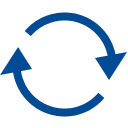What Types of Polycarbonate Sheets Do We Offer?
Our team of in-house professionals custom cut
clear polycarbonate sheets based on the exact specifications of your material needs. Choose from a wide range of
polycarbonate options, including:
- Machine Grade Polycarbonate used when projects require tight tolerances and heavy fabrication.
- Glass Filled Polycarbonate which increases strength and stiffness.
- Carbon Filled Polycarbonate which dissipates static electricity quickly and offers ESD protection.
- Bullet Resistant Polycarbonate which is an alternative to bulletproof glass. Different levels of protection are available.
Acme Plastics has Cut-to-Size
Clear Polycarbonate Sheets.
What is the Best Way to Cut Polycarbonate Sheets?
When cutting polycarbonate sheets the most effective type of blade to use in all cases is a fine-tooth blade. There are multiple ways to cut polycarbonate sheets using a fine-tooth blade including a circular saw, saber saw, or table saw. When using a circular saw or saber saw, clamp a straight-edge to the polycarbonate sheet to guide the saw and make sure you are steadily cutting the plastic. When using a table saw to cut polycarbonate move the sheets through the saw as you would a piece of plywood paneling. Alternatively, you can have our knowledgeable team conveniently cut your polycarbonate sheets to size to save time, wasted material, and reduce shipping costs.
What Kind of Saw Blade is Needed to Cut Polycarbonate Plastic?
Polycarbonate is a rigid plastic sheeting that comes in various thicknesses. It can be cut with a variety of common handheld, and table-mounted saw equipment. Fine tooth hollow ground blades and triple chip carbide blades are the best choices for cutting polycarbonate and producing a high-quality finish.
Is Polycarbonate Stronger than Acrylic?
While acrylic and polycarbonate plastics are both stronger and lighter than glass, polycarbonate has significantly stronger break-resistance than acrylic. Known for its superior durability and robustness, polycarbonate is a resilient thermoplastic material and has a higher impact resistance than acrylic. Polycarbonate is popularly used for bulletproofing applications, protective gear, greenhouse panels, roofing panels, lights, signals, and safety glasses. Polycarbonate is also used in police riot shields because of it being lightweight and having near indestructible qualities.
What are the Benefits of Custom Cut Polycarbonate Sheets?
There is a multitude of benefits for custom cut polycarbonate sheets, specifically using them to fit perfectly inside of your application. By receiving the exact size of polycarbonate you need, it will save you time and is ultimately more convenient because it doesn't require you to use any tools or equipment. Also, by getting custom-cut polycarbonate, you will save money on shipping costs and pay for only the material you need. Polycarbonate is also easily machined and fabricated and works perfectly as fencing and barriers, windows for residential and commercial buildings, impact and bullet resistant windows, and panels, greenhouses, sports equipment, machinery guards, and so much more. No matter what your need for polycarbonate, having it cut down to custom requirements will provide an exceptionally precise product.
People Also Ask:
Can Polycarbonate Be Used for Windows?
Polycarbonate can be used for window and skylight applications due to its high optical clarity and its impact resistance. This creates a durable window that allows natural light to enter the building while providing UV protection. Polycarbonate can also be tinted to control the amount of light that enters a building. Polycarbonate is roughly 6 times lighter than standard glass and about 250 times more impact resistant than safety glass. These advantages make polycarbonate a popular choice for window and skylight applications.
Does Polycarbonate Block UV and Blue Light?
Polycarbonate inherently blocks most of the sun's UV rays, but standard polycarbonate cannot block blue light, also known as high-energy visible light (HEV). By adding a special coating, polycarbonate can enjoy blue light protection. This is why polycarbonate is popular for use in both regular eyeglasses and sunglasses.
Does Polycarbonate Absorb Heat?
Certain color polycarbonate sheets and panels with heat-blocking additives can absorb heat. This is done by filtering near-infrared rays, which reduce heat buildup from sun light. However, these heat blocking additives will not block visible light that can be perceived by the human eye. For reference, sunlight emits three main types of rays: Ultraviolet rays, visible light, and infrared rays that generate heat.
Does Polycarbonate Discolor?
Polycarbonate will slowly change color and start to yellow if it is directly exposed to UV rays for a very long time. To prevent this, some polycarbonate sheets use a special coating that inhibits the transmission of UV light, providing additional protection to the polycarbonate sheet.
What is Polycarbonate Roofing Material?
Polycarbonate is a strong, impact-resistant and lightweight thermoplastic that can withstand extreme temperatures. Polycarbonate sheets come in a wide range of colors and options, allowing builders to control the amount of light transmission as well as provide UV protection. These properties make polycarbonate a great choice for roofing applications such as patios, awnings, and decks.
Is Polycarbonate Plastic Bulletproof?
Although polycarbonate has excellent impact resistance, standard polycarbonate is not bullet resistant. However, specialized multi-layered polycarbonate sheets can provide bullet resistance, which can protect users from forced entry and a limited amount of gunfire.
What is The Melting Point of Polycarbonate Plastic?
Polycarbonate’s melting temperature is between 225°C (437°F) and 315°C (600°F), but it will gradually soften when exposed to temperatures of 147°C (297°F) for an extended period. It will become a flowing liquid at about 155°C (311°F). This makes polycarbonate thermoformable under the right conditions.








